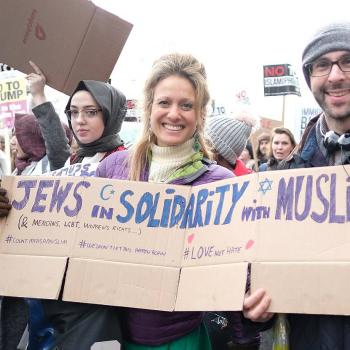 |
|
I’m not an egg, not yet a fetus
|
Once again, the Congress and the President are heading toward a showdown on the issue of stem cell research. By a vote of 63-34, the Senate passed the Stem Cell Research Enhancement Act (S5), which eased the restrictions placed in 2001 on federal funding of embryonic stem cell research by President Bush. The House passed its version of the bill three months ago, by a vote of 253-174. President Bush has vowed to veto the bill: “This bill crosses a moral line that I and many others find troubling. If it advances all the way through Congress to my desk, I will veto it.” Although polls indicate that a majority of Americans support embryonic stem cell research, this means little to the President, who vetoed a similar bill passed by Congress last year.
This begs the question: what are stem cells, and why does this issue garner such a passionate debate among politicians of both parties? Stem cells are cells which have the ability to form any cell in the body, given the correct conditions. Potentially, these cells can be used to cure a variety of diseases, from juvenile diabetes, to cancer, to Alzheimer’s and Parkinson’s dementia, to spinal cord injury. Although adults do have these cells, they are few in number, much more difficult to harvest, and, experts say, may not be as versatile as the stem cells obtained from human embryos.
Herein, however, lies the rub. In order to harvest embryonic stem cells, the human embryo is inevitably destroyed. This is the reason the President, and other Christian conservatives, oppose the process. They believe human life begins at conception, and therefore, to destroy a human embryo amounts to nothing short of “infanticide.” In a statement, the President said, “I believe this bill will encourage taxpayer money to be spent on the destruction or endangerment of living human embryos.”
This begs another question: what do Muslims believe? Most American Muslims support research on human embryos, according to a survey conducted in 2001, and many Muslim countries also support the practice, although the debate has not eluded the Muslim world. Islamic law also appears to be on the side of supporting embryonic stem cell research. According to Dr. Muzammil Siddiqui, the Shar’iah makes a distinction between “actual life” and “potential life,” with “actual life” given a higher priority for protection in the law. An embryo created in a dish during the process of in vitro fertilization – generally considered permissible in Islam – has the potential to become a human being, but it is not yet a human being. Thus, to destroy it to harvest stem cells would not be considered destroying human life.
Moreover, there is a debate among Muslim scholars as to when exactly the soul enters into the fetus, rendering it “actual life”: some say 40 days, others say 120 days, depending on how they interpret this hadith of the Prophet (pbuh): “Each of you possesses his own formation within his mother’s womb, first as a drop of matter for forty days, then as a blood clot for forty days, then as a blob for forty days, and then the angel is sent to breathe life into him.” Either way, an embryo which is just days old and is destroyed after stem cells are removed would still not be considered destroying “actual life,” and thus should be permissible.
And one must not forget the ultimate purpose of this research: to use the knowledge God has given us to cure disease, alleviate human suffering, and save human life, which the Qur’an says God has made sacred. According to Dr. Siddiqui, “It is claimed by the experts in the field that the research on stem cells has great potential to relive human disease and suffering. If this is the case then it is not only allowed, but it is obligatory (fard kifayah) to pursue this research.” The argument in favor of stem cell research from the Islamic perspective has been excellently summarized in an article by Michele Weckerly in the Journal of Law and Religion published by the Rutgers University School of Law.
Yet, I suspect that the support of most Americans for embryonic stem cell research does not come out of religious conviction. This is in contrast, however, to the opponents of stem cell research, most importantly President Bush, who base their opposition, it seems, on their personal religious belief. While I respect this religious belief, I find it interesting that the President would veto a bill expanding stem cell research in the name of preserving life (albeit in the form of unborn, frozen embryos). Yet, he took the nation into war against another country which had nothing to do with 9/11, neither attacked nor was going to attack the United States, and did not have weapons of mass destruction. As a result, more than 3200 American soldiers, along with an estimated 650,000 Iraqi civilians, have been killed. This is in addition to the tens of thousands that have been maimed and injured.
All of these people were living, breathing, and already born. Doesn’t this “cross a moral line”? Doesn’t the President find this “troubling”? Or are some lives are more sacred than others?
Hesham A. Hassaballa is a Chicago physician and writer. He is the co-author of “The Beliefnet Guide to Islam,” published by Doubleday in 2006. His blog is at godfaithpen.com.















